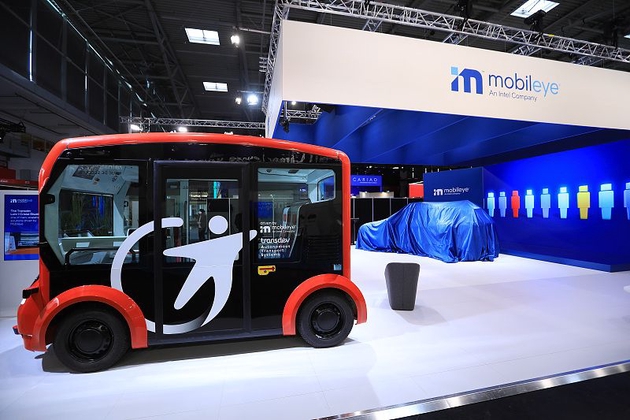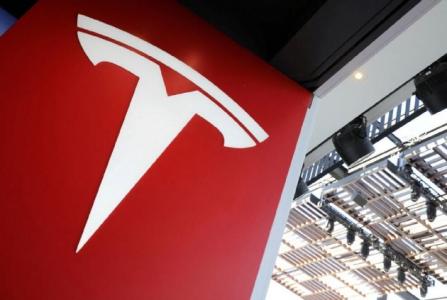your current location is:Home > carHomecar
The IPO valuation of Intel's autonomous driving company has shrunk by $20 billion, but the domestic track is still hot

Intel lowered its IPO size forecast for its self-driving service provider Mobileye to a maximum of $30 billion from an initial media estimate of $50 billion. What was expected to be the largest IPO on U.S. stocks this year could also be delayed until next year.
Affected by the continued weakness in U.S. semiconductor stocks, investor interest in Mobileye has weakened significantly. According to previous reports from Jiemian News, Mobileye's own development is also in a bottleneck, and users in the Chinese market are losing.
Mobileye is an autonomous driving technology company based in Israel, focusing on computer vision. It is the founder and leader of ADAS technology in the past 20 years and has almost monopolized the advanced autonomous driving chip market.
In 2017, Intel's $15.3 billion acquisition of Mobileye saw it as an important part of its overall strategy to reverse weakness in its core business. This is also one of the largest mergers and acquisitions in Intel's history.
After being included in Intel, Mobileye has shown great potential. Its customers include BMW, GM, Audi, Volkswagen, Ford and other heavyweights, and its sales have increased from $698 million in 2018 to $1.4 billion in 2021.
However, the follow-up development of Mobileye is difficult to keep up with the pace of the times. The self-driving chip EyeQ5 launched by Mobileye in 2020 is obviously inferior to Nvidia Orin in terms of computing power. Also using the 7nm FinFET process, the latter has a single computing power of 254TOPS, which is almost 10 times that of the former.
Zhang Yichao, a partner of Ernst & Young’s strategic consulting firm, told Jiemian News that Mobileye has outstanding strength in assisted driving, but now whether it is the computing power of the chip or the autonomous driving algorithm provided for car companies on this basis, “Mobileye has already A little overwhelmed."
For car companies pursuing intelligent differentiation, the closed algorithm provided by Mobileye that integrates software and hardware can no longer meet the demand. Domestic car companies have begun to turn their heads to domestic chip manufacturers to throw olive branches.
Li Xiang, CEO of Lixiang Automobile, once publicly stated that due to the inability to meet the needs of full-stack self-development of intelligent driving, Lixiang Automobile stopped cooperation with Mobileye at the end of 2020 and began to use Horizon's "Journey 3" chip.
Another domestic self-driving chip manufacturer, Black Sesame Smart, has also reached a platform-level strategic cooperation with Jiangqi Group. Many mass-produced models of the Sihao brand under Jiangqi Group will be equipped with Black Sesame Smart Huashan No. 2 A1000 series chips.
Yang Yuxin, CMO of Black Sesame Intelligence, said in an interview with Jiemian News that compared with overseas chip companies, domestic local chip manufacturers have cooperated closely with car companies from the product definition stage, and the speed of technical iteration is more in line with the requirements of local car companies, and the business model and price system. more flexible.
Zhang Qiang, chairman of Xinchi Technology, told Jiemian News that self-driving algorithms need continuous data "feeding", and chip companies cannot compete with car companies in this regard, and car companies are actually more advanced in terms of algorithm maturity.
"In the past, any company that could provide a complete set of hardware and software was very welcome by car companies, but today it is unacceptable for car companies if they can't embed their own research and development content."
Jiemian News learned that investment in the domestic autonomous driving chip field is still hot. According to Bloomberg, Horizon is considering raising between $100 million and $200 million in new funding, and plans to go public as early as this year, with up to $1 billion expected to be raised. Black Sesame Smart just completed the C+ round of financing in August, and the IPO process is also in preparation.
Relaxing to the entire field of autonomous driving technology, the polarization of investment at home and abroad is also more obvious. According to data from investor website PitchBook cited by China Business News, overall capital investment in mobility startups has slowed, and companies focusing on autonomous driving technology have been hit particularly hard. In the second quarter of this year, autonomous driving companies attracted global venture capital investment. down to less than $1 billion.
Foreign autonomous driving companies have frequently reported layoffs. Argo AI, an autonomous driving company invested by Ford and Volkswagen, has laid off about 150 employees; about 8% of the employees of Cruise, an autonomous driving subsidiary of GM, have been fired, affecting about 140 people, mainly responsible for the research and development of lidar. Work.
Even Tesla, which is gaining momentum, is shedding its self-driving division. In July, Tesla permanently closed its San Mateo, Calif., office and laid off 229 jobs. This office is part of Tesla's autopilot team, which is mainly responsible for data labeling of the autopilot system.
In contrast, in China, the boom in the autonomous driving industry continues. Statistics from ICV City found that in the first quarter, there were 46 financing events for autonomous driving companies in China, with a total financing amount exceeding US$1.7 billion. WeRide, an L4-level autonomous driving company, ranked first in terms of financing amount in the first quarter with a financing amount of over US$400 million.
Affected by the epidemic, the investment and financing of autonomous driving in the second quarter was short-term cold, but there were still 28 companies that completed financing, of which Ruqi Chuxing took the lead with over 1 billion yuan in Series A financing.
Previous:Musk thinks self-driving cars are the future, but three-quarters of Americans don't think it's safe
related articles
Article Comments (0)
- This article has not received comments yet, hurry up and grab the first frame~












